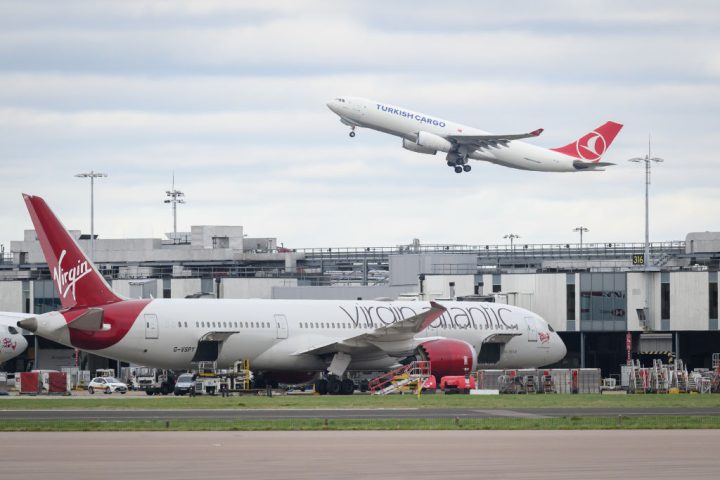When passing through an airport, the average traveller is unlikely to give much thought to the invisible economic forces that run the place. But the way take-off and landing slots are allocated at an airport affects a range of things, not least ticket prices and the range of destinations you can reach. This week, the government has launched a consultation on overhauling the system under which these slots at Britain’s busiest airports are allocated. It’s about time.
In recent years, the airline industry has modernised dramatically. In its infancy, air travel was a heavily state-directed industry. Then, from the mid-1980s onwards, Britain became a pioneer in opening up the sector to market forces, an approach which was then adopted EU-wide in the early 1990s. It has been a huge success. Passenger numbers have exploded, fares have come down (even though air travel is now much more heavily taxed), and connectivity has improved hugely.
Britain should phase out the current bureaucratic process and allow a market in take-off and landing slots to emerge
But airport capacity and slot allocation have bucked this trend towards liberalisation. These are the two remaining islands of central planning in an otherwise market-oriented sector.
A decade ago, the government set up an expert commission to work out which airport in the Southeast of England (if any) should be expanded. The result was the decision to build a third runway at Heathrow. This is not how we normally deal with capacity constraints in the private sector: we let the market work it out, not expert commissions.
Then there’s the matter of slot allocation. At first sight, the relationship between an airport and an airline looks a bit like the one between a shopping centre and a shop. The airline ‘rents’ runway space, and the logistical services associated with it, from the airport operator, in the way a shop rents retail space and associated services from a shopping centre.
However, the big difference is that airports (or at least the more congested ones) have little control over who gets to use their runway slots, and under what conditions. Those slots are, instead, allocated by a designated quango (Airport Coordination Limited, in the UK).
The quango does not have much leeway either. It must apply a set of EU rules, which the UK has thus far retained.
Under those rules, if an airline has used a slot in any given period, it has an automatic (albeit not unconditional) right to use it again in the next period. In reality, this means that airlines can hold on to a slot in perpetuity. There are exceptions, but overall this approach rigs the market in favour of well-established incumbents. It is probably the main reason why, even today, many large airports are still dominated by historic ‘flagship carriers’. British Airways, for example, holds about half of all Heathrow slots, as does Air France in the case of Paris Charles de Gaulle, or KLM at Amsterdam Schiphol.
Airlines pay service charges, but those are nowhere near what the market value of a prime-time slot at a busy airport would be. This means that incumbent airlines get a valuable, scarce resource pretty much for free, as a gift from the regulator – a sizeable implicit subsidy.
There are several ways to counter the system’s pro-incumbent bias, but these are either inadequate, or they create new problems of their own. For example, the ‘use it or lose it’ rule requiring airlines to use their slots for 80 per cent of the time allocated to them prompts airlines to fly smaller planes to spread their passenger capacity across their slots. As we saw during the pandemic, they even resort to flying empty planes – so-called ‘ghost flights’ – to fill the slots and keep hold of them for the future.
Now that we are no longer bound by EU rules, it is about time to bring the slot allocation system into line with the rest of the aviation sector. Britain should phase out the current bureaucratic process and allow a market in take-off and landing slots to emerge. Slots could be auctioned off or congestion pricing introduced to ensure that airlines who hog slots they don’t use can no longer do so.
Brexiteers and Remainers tend to agree on one thing: that Britain has thus far failed to make much of the additional flexibility that leaving the EU’s regulatory orbit has given us. Hopefully, this shake-up will pave the way for more efficient use of airport slots, greater competition between airlines, lower prices, and greater passenger numbers. If successful, we might just be able to chalk it up as a Brexit win.






Comments